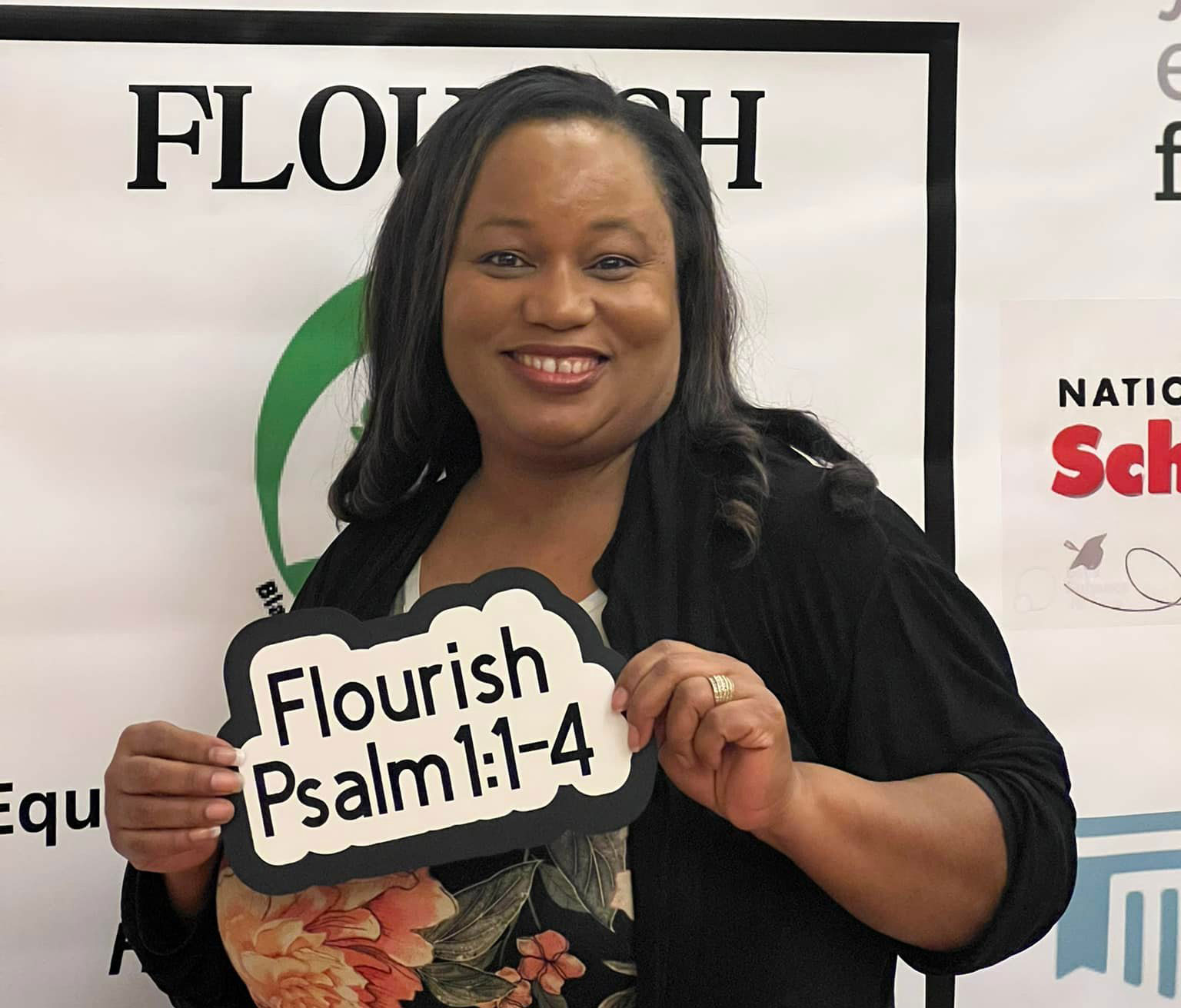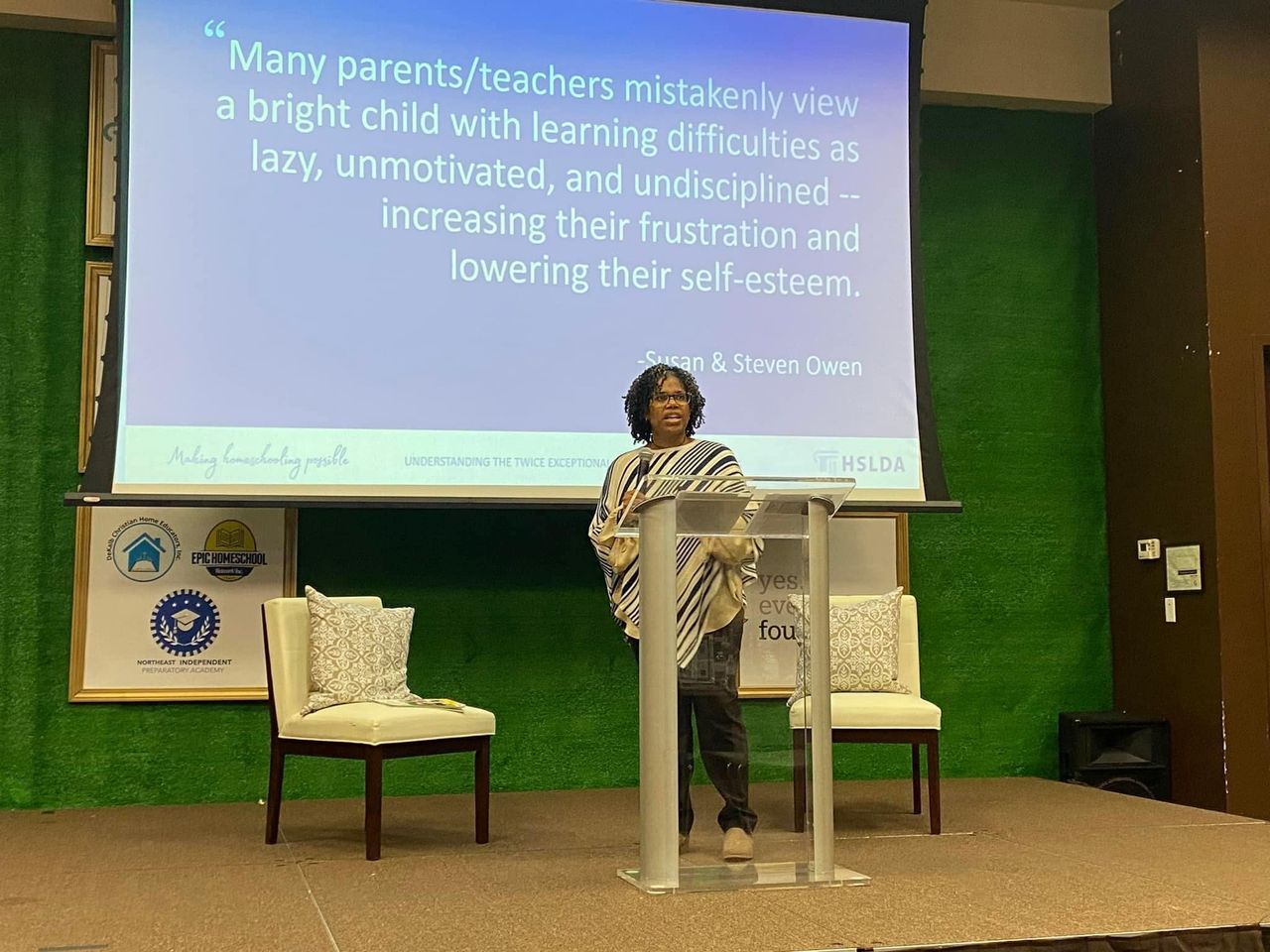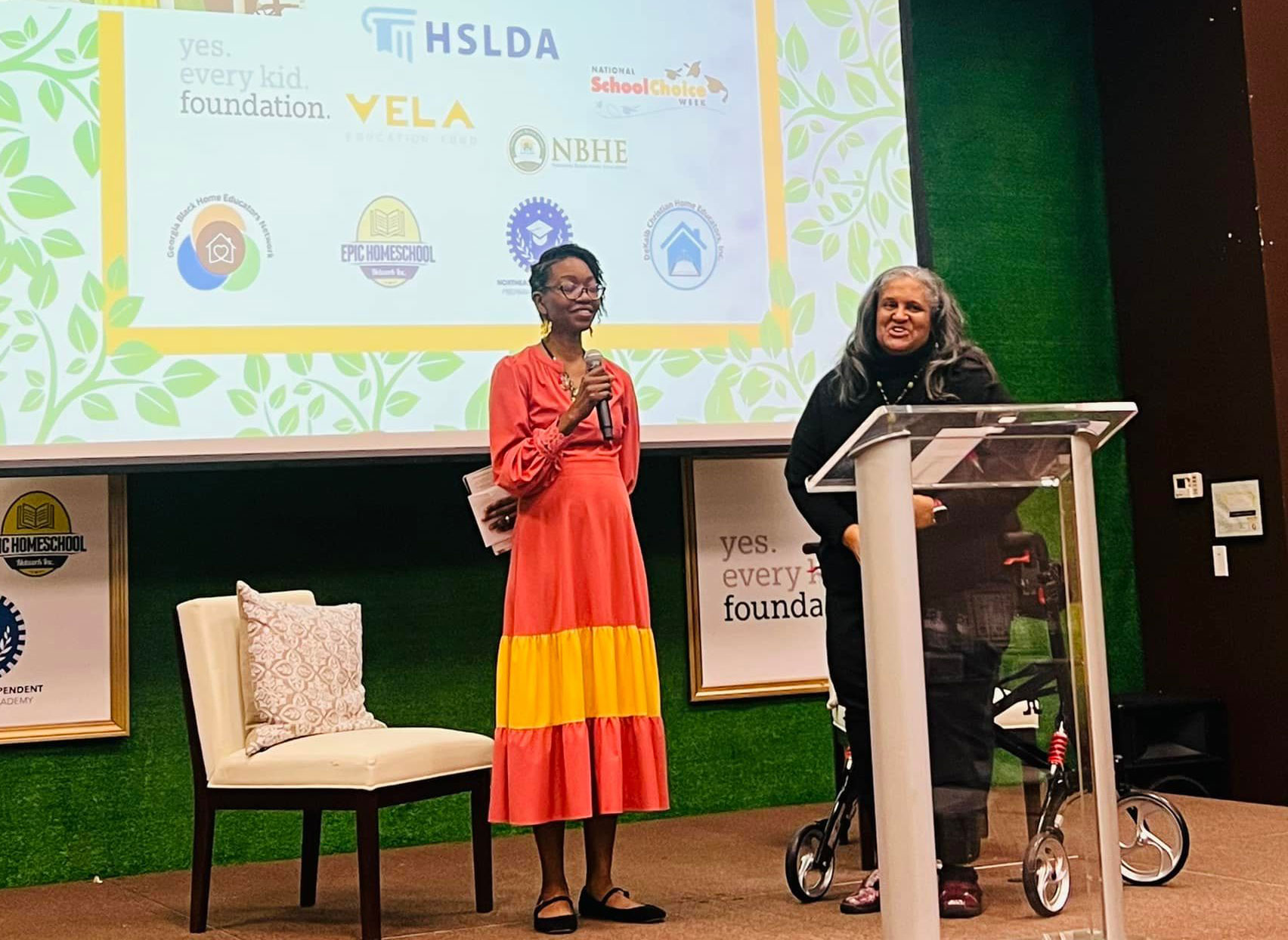When Nicole Doyle and her husband, Willie, began homeschooling their four children in 2014, the switch to a more personalized style of education helped them recognize even more vividly how each of their four children are gifted.
Homeschooling allowed their son, now 19, to pursue his passion for music. This led (among other amazing opportunities) to opera lessons, participation with the Atlanta Music Project, and acceptance into the Morehouse College Glee Club, a renowned male chorus that has been featured in film and television and has performed around the globe.
Much of the Doyle family’s education occurred through DeKalb Christian Home Educators (DCHE), a Georgia homeschool co-op where Nicole serves as president. Founded in 1989, the organization provides classical curriculum with a focus on Christian values and a wide range of activities from robotics to Bible quiz competitions.
Nicole said she reflected on the importance of DCHE to her own children while observing how so many more Black families have embraced homeschooling since the COVID-19 pandemic.
After observing all this growth, she wanted to ensure that families who are new to homeschooling find their place in community and locate the resources that will help their children thrive.
“I also knew that our co-op is not the best fit for all homeschool families,” Nicole said.
So she started networking with other leaders to develop an organization that could assist the surging number of Black homeschoolers in the Atlanta area.
“We’re looking for experiences that speak to our culture, our history,” she told the city’s WAGA-TV. “We want to equip the parent, we want to encourage the parent, we want to energize them for this journey.”
That’s how the Georgia Black Home Educators Network (GBHEN) came into being. At Nicole’s invitation, HSLDA offered support for the new venture.

LaNissir James displays an inspirational sign.
LaNissir James, HSLDA high school educational consultant and Black outreach coordinator, helped Nicole as she developed a vision for how GBHEN could provide both inspiration and practical help. LaNissir also served as a liaison between leaders in Georgia and HSLDA staff.
In January, the nonprofit held the inaugural Flourish Black Family Homeschool Conference. The event drew more than 300 attendees and exhibitors.
“The whole weekend was about encouraging each other and fostering a sense of hope,” said Rochelle Matthews-Somerville, PhD, HSLDA special needs consultant.
Other HSLDA staff members, including Darren Jones, accepted the invitation to support the conference as workshop presenters on topics ranging from homeschool methodologies to educating children with special needs, and even tips for launching a new homeschool group.

Rochelle Matthews-Somerville, PhD, HSLDA special needs consultant, presents a session on homeschooling children with special needs.
She, LaNissir, and other HSLDA staff members accepted the invitation to help at the conference. Among other things, they presented workshops on the homeschooling process, educating children with special needs, and tips for launching a new homeschool group.
Nicole said the event was intended to focus on the community. “We’re trying to build an ecosystem,” she explained. "A system of interwoven support for homeschool parents and their kids. We’re also being specific to the culture.”
To help explain what this cultural-specific support looks like, Nicole told us about a Haitian family who now lives and homeschools in the United States. They love their new situation, but they also want to transmit to their kids the rich heritage of their homeland.
This means not just teaching formal French—the lingua franca of Haiti—but also finding resources to help immerse their kids in the more intimate dialect of Haitian Creole. For an immigrant family working on their own, tracking down something that specific could present a major challenge.

Conference organizer Nicole Doyle introduces the keynote speaker, Cheryl Ann Fields.
To help families in their search for learning tools that fit their children’s needs and passions, Nicole arranged to have what she calls “educational entrepreneurs” come to the conference and present their services. These private instructors and tutors have been active in the Black community for some time. The Flourish conference helped them offer their crucial services to even more families.
For example, Nicole said any Haitian family attending the conference would have been delighted to learn that one of these entrepreneurs was a teacher from the Dominican Republic (which occupies the eastern part of the island of Hispaniola right next to Haiti). This tutor can teach in a number of languages—and do so in a way that is respectful of Caribbean cultures.
The conference also featured a panel of fathers who talked about the various roles they take in their home education programs. The presentation gave depth to one of the major themes of the event—how to strengthen homeschool families.
A number of speakers and exhibitors discussed opportunities for homeschool students after graduation. In fact, with the help of Natalie Mack, HSLDA military outreach coordinator, the conference featured recruiters from the US Army and Spelman College.
These combined efforts culminated in a productive, educational and successful event.
LaNissir recalled: “A lot of the moms at the conference said they’d not encountered this sort of support before, and this really impacted how they could see themselves homeschooling for the long haul.”
